Universal Access to Quality Tertiary Education Act
Sen. Bam congratulates UNIFAST, CHED for crafting IRR on free tertiary education
Sen. Bam: All systems go for free college education!
Sen. Bam Aquino happily announced that the revolutionary reform for free college education has been funded by Congress, as he voted in support of the ratification of the 2018 national budget.
“Ngayon na may pondo na ng 40 bilyong piso para sa libreng kolehiyo, maaasahan ng mga estudyante na magiging libre na ang tuition at miscellaneous fees sa mga pampublikong unibersidad at kolehiyo,” said Sen. Bam Aquino, the principal sponsor and co-author of Republic Act 10931 or the Universal Access to Quality Tertiary Education Act in the Senate.
“Natutuwa tayo na mas maraming Pilipino na ang makaka-graduate sa kolehiyo salamat sa tulong ng gobyerno,” added Sen. Bam.
According to Sen. Bam, the bicameral conference committee allotted P40 billion in the 2018 budget for free college education in state universities and colleges, local universities and colleges and TESDA-run vocational schools.
“We thank the members of the bicameral conference committee for prioritizing education. Our sincerest gratitude to our Finance Committee chairperson, Sen. Loren Legarda for defending and working to keep the budget for free education,” said Sen. Bam.
However, Sen. Bam said there’s still work to be done once the law is rolled out. “We must ensure that the law is implemented properly for the benefit of our students,” said Sen. Bam.
Thanks to the Universal Access to Quality Tertiary Education Act, tuition fees will be free in SUCs, LUCs and TESDA-run technical vocational schools.
Students will also be spared from paying miscellaneous and all other mandatory fees while scholarship grants will be made available to students of both public and private college and universities.
Under RA 10931, students can also avail of the new and improved student loan program, where they can apply for financing for other educational needs.
“Now that more Filipinos have access to a college education, let’s work on improving the quality of public education in the country,” stressed Sen. Bam.
Sen. Bam calls on stakeholders, leaders to unite for education reform
Sen. Bam: Free tuition in public universities and colleges starts this semester
Students of state universities and colleges (SUCs) all over the country will enjoy the benefits of Republic Act 10931 or Universal Access to Quality Tertiary Education Act earlier than expected.
In a radio interview, Sen. Bam Aquino announced that the 112 SUCs will not collect tuition fees and miscellaneous expenses from students starting this semester. Initially, the government said the law will be implemented starting the school year 2018-19.
Sen. Bam said he was informed by the Commission on Higher Education (CHED) that no tuition fees and miscellaneous expenses will be collected from students this semester.
“Kahapon, kinumpirma ko na implemented na po ito this second semester. So lahat ng mag-e-enrol this second semester, dapat wala nang kinokolektang tuition at miscellaneous expenses,” said Sen. Bam, principal sponsor and co-author of RA 10931.
“Iyong mga staff natin at mga partners sa iba’t ibang lugar, tinitingnan na ang mga SUCs kung wala silang kokolektahing tuition at miscellaneous expenses,” added Sen. Bam.
Sen. Bam also announced that lawmakers have allotted P40 billion in the 2018 national budget for the implementation of RA 10931 for school year 2018-19.
Meanwhile, Sen. Bam encouraged students who failed to finish their college course to inquire with SUCs if they can go back to school and finish their studies for free.
“Natutuwa kami dahil ang batas na ito ay hindi lang para sa kasalukuyang naka-enroll pero sa mga nag-drop-out dahil puwede nilang ipagpatuloy ang kanilang pag-aaral nang libre,” Sen. Bam pointed out.
The law provides free education to students in SUCs, local universities and colleges (LUCs) and TESDA-run vocational schools. Aside from tuition fees, the government will shoulder miscellaneous and all other mandatory fees.
Scholarship grants will be made available to students of both public and private college and universities. It also provides a new and improved student loan program, where students can apply for financing for other education expenses.
In addition, students taking post-graduate studies can avail of the new and improved student loan program and scholarships under the law.
The measure was languishing in the legislative mill for years before it was passed during Sen. Bam’s time as chairman of the Committee on Education in the 17th Congress. This was Sen. Bam’s 19th law in his four years as senator.
Sen. Bam elated by all-out support for free college education
Sen. Bam Aquino welcomed the government’s all-out support for the full implementation of the law providing free education in state colleges and universities, local universities and colleges (LUCs) and vocational schools under the Technical Education and Skills Development Authority (TESDA).
“We are happy with the government’s promise to go all-out in implementing this law for the benefit of Filipino students, especially those who are poor and underprivileged,” said Sen. Bam, referring to Republic Act 10931 or the Universal Access to Quality Tertiary Education Act.
“Natutuwa tayo at kaisa natin ang pamahalaan sa hangaring hanapan ng kailangang pondo para sa epektibong pagpapatupad ng batas na itinuturing na napakalaking reporma sa edukasyon sa bansa,” added Sen. Bam, the principal sponsor and co-author of the measure in the Senate during his stint as chairman of the Committee on Education.
Budget Secretary Benjamin Diokno expressed confidence that the P51 billion needed in the first year of implementation of the law can be sourced from the 2018 national budget. Diokno added that President Duterte is committed to implement the law by finding the needed budget for it.
Senate Finance Committee chairperson Loren Legarda also committed to find the necessary space in the 2018 budget for the implementation of RA 10931.
“Mahalagang mabigyan ng karampatang pondo ang batas na ito upang matupad ang layunin nitong mabigyan ng pagkakataon ang mas maraming Pilipino na makatapos ng kolehiyo at magkaroon ng magandang kinabukasan,” stressed Sen. Bam.
The law provides free education to students in SUCs, local universities and colleges (LUCs) and TESDA-run vocational schools. Aside from tuition fees, the government will shoulder miscellaneous and all other mandatory fees.
Scholarship grants will be made available to students of both public and private college and universities. It also provides a new and improved student loan program, where students can apply for financing for other education expenses.
In addition, students taking post-graduate studies can avail of the new and improved student loan program and scholarships under the law.
The measure was languishing in the legislative mill for years before it was passed during Sen. Bam’s time as chairman of the Committee on Education in the 17th Congress. This was Sen. Bam’s 19th law in his four years as senator.
Sen. Bam: Free college education effective weapon vs poverty, crime, illegal drugs
Sen. Bam Aquino believes that the free college education law recently signed by President Duterte can be a long-term solution to poverty, crime and even illegal drugs.
“A college degree can unlock a better job and better livelihood for Filipino families. It is an effective weapon and long-term solution to combat poverty, crime and drugs,” said Sen. Bam, the Senate’s principal sponsor and co-author of the Universal Access to Quality Tertiary Education Act or Republic Act 10931
“Ngayong may pagkakataon na ang maraming Pilipino na makatapos ng libreng kolehiyo, mas malaki ang tsansa nilang makaahon sa kahirapan at umasenso,” added Sen. Bam, who has been advocating for education, jobs and business as keys to lifting Filipinos out of poverty and giving them a chance at a better future.
Earlier, Sen. Bam thanked President Duterte for signing the important measure into law, saying that millions of Filipinos are the real winners with this revolutionary education reform.
“Pagkatapos ng ilang dekada, batas na ang inaasam-asam ng napakaraming pamilyang Pilipino na libreng kolehiyo,” said Sen. Bam, “Estudyante, magulang at pamilyang Pilipino ang tunay na bida ng batas na ito.”
The measure was languishing in the legislative mill for years before it was passed during Sen. Bam’s time as chairman of the Committee on Education in the 17th Congress. This was Sen. Bam’s 19th law in his four years as senator.
With this law, students will enjoy free education in state universities and colleges (SUCs), local universities and colleges (LUCs) and vocational schools under the Technical Education and Skills Development Authority (TESDA) starting the second semester of school year 2017-18.
Aside from tuition fees, the government will shoulder miscellaneous and all other mandatory fees.
Scholarship grants will also be made available to students of both public and private college and universities. Plus, it provides a new and improved student loan program, where students can apply for financing for other education expenses.
Republic Act 10931: Universal Access to Quality Tertiary Education Act
In the Philippines, 2 out of 5 high school graduates do not pursue tertiary education, hindered by the high tuition fees in addition to miscellaneous expenses incurred while studying. After spending many years working hard to make ends meet in order to put their children through school to obtain a high school diploma, it is often a disappointment to students who face the choice between working to help their family or sacrificing the education of other siblings so that one may be sent to college.
In line with the mandate of our Constitution, the State must uphold the right of all citizens to quality education at all levels. This bill seeks to make tertiary education in all State Universities and Colleges free of tuition for its students and fully subsidized by government.
Tertiary education is a valuable key that can help Filipino families break out of the poverty cycle, as families headed by tertiary degree holders earn, on average, two times as much as families who do not have postsecondary education.
However, higher education is often only available to middle-income families who can afford the high tuition fees and extra costs. As a result, these families continue to reap the benefits of obtaining a postsecondary education while poor families continue struggling to reach beyond their current economic situation.
In a nation with glaring income and educational inequality, the provision of tuition-free college education will be one great leap toward developing our fragile democracy. By unlocking this opportunity, poor and low-income families stand to benefit the most and will be empowered both economically and socially to be able to fully participate in our democratic nation.
A college education is not only a qualification that results in higher paying jobs, but is most importantly a means for the development of knowledge, innovation and social change in a nation. Supporting the growth of higher education in the Philippines will serve to heighten the quality of workforce so that we may partake more meaningfully in the global production of knowledge.
Sen. Bam: We will deliver free tuition at all costs
Sen. Bam Aquino said he, along with the other legislators, will continue to fight for the enactment of the measure providing free tuition at all costs.
“If the Universal Access to Quality Tertiary Education Act is vetoed, there are alternative actions that the legislature can undertake to ensure that our students still receive the support they need. Congress with a two-thirds vote can reconsider the veto and still pass it into law. Or we can fund this initiative on a year-to-year basis through the GAA,” said Sen. Bam, principal sponsor and co-author of the measure in the Senate.
“Lastly, we can refile the measure, but this will take time,” added Sen. Bam.
Sen. Bam reiterated that Sen. Loren Legarda, chairperson of the Committee on Finance, has committed to fund free college education, which would need around a minimum of P25 billion. A much smaller amount than theP100 billion as earlier claimed by the economic managers.
However, Sen. Bam remained hopeful that President Duterte will still sign the bill into law. He added, ‘I hope the President and his economic managers can see this as a sound investment in our future.’
In the Senate, Sen. Bam maintained that education and free tuition remains a priority. “Hahanapan natin ng paraan upang ibigay natin into para sa pamilyang Pilipino,” said Sen. Bam.
Sen. Bam defended the bill in plenary debates and interpellation during his stint as chairman of the Committee on Education.
He also stood as co-chairman of the Senate delegation to the bicameral conference committee, together with new Committee on Education chairman Sen. Francis Escudero and members Sens. Sherwin Gatchalian and Ralph Recto.
If passed into law, students will start to enjoy free education in state universities and colleges (SUCs), local universities and colleges (LUCs) and vocational schools under the Technical Education and Skills Development Authority (TESDA) starting the second semester of school year 2017-18. Aside from tuition fees, the government will also shoulder miscellaneous and other fees.
Under the law, scholarship grants will also be made available to students of both public and private college and universities. It also provides a loan program, where students can apply for financing for other education expenses.
FAQs: The Universal Access to Quality Tertiary Education Act
The Universal Access to Quality Tertiary Education Act
Frequently Asked Questions (FAQs)
Why support the Universal Access to Quality Tertiary Education Act?t
This measure is an investment in the future of our youth and in the Filipino family. This measure allows more Filipinos to afford a college education or technical-vocational course, which should open up more opportunities for employment and livelihood. A free tertiary education also relieves parents and breadwinners of a major expense, allowing them to spend on other needs, like healthcare and housing, or set aside more for savings.
Who will get free tuition in the current version of the law?
All students who are enrolled or will enroll in State Universities and Colleges (SUCs), accredited Local Universities and Colleges (LUCs), and publicly-run Technical-Vocational Institutions (TVIs) are entitled to a tuition and other fees-free education as long as they fulfill the admission and retention standards of the schools and this measure.
Who are not eligible to a tuition-free post secondary education?
- For SUCs and LUCs:
- Students who already have a bachelor’s degree, or comparable undergraduate degree, who failed to comply with the admission and retention standards of the SUC/LUC,
- Students who failed to complete the degree program within a year more after the prescribed period of the program are no longer qualified for the free tuition.
- For state-run TVIs:
- Students who already have a bachelor’s degree or any comparable undergraduate degree or diploma for techvoc courses equivalent to National Certificate (NC) III
- Students who failed any course within the techvoc program.
The students in this list can still enroll in their respective schools, but they would have to pay for the tuition and other fees.
What is StuFAP? What does it cover?
Student Financial Assistance Programs (StuFAPs) are programs that provide financial assistance to students. StuFAPs come in 3 forms- scholarships, grant-in-aid programs, and student loans.
The Tertiary Education Subsidy (TES) for Filipino Students is a fund that is created to strengthen the StuFAPs. This will be the fund that will be utilized to provide assistance to students in need who are enrolled in higher education institutions. This will be administered by the Unified Financial Assistance System for Tertiary Education (UniFAST).
Accessing this fund is different from the free tuition scheme in SUCs, LUCs, and state-run TVIs.
What is the loan program?
One of the new features of the bill is the creation of a pool of money for student loans. The student loan program will be available to all Filipinos to supplement other costs that are brought about by studying in a Higher Education Institution (HEI) or TVI or to address unexpected situations to ensure that students will not drop out of school. This pool of money will be facilitated by the UniFAST.
What is the status of the bill? When will this be rolled out?
The Universal Access to Quality Tertiary Education Act was signed into law by President Duterte on August 3, 2017. (The bicameral conference report was ratified by both houses last May 30, 2017.)
The legislators intend for the law to be implemented in time for the second semester 2017-2018.
Common Concerns & Misconceptions
1) “Free tuition is a subsidy for the rich”
It is true that only 12% of the poorest of the poor are in SUCs. The large percent of the poorest of the poor aren’t in college because of financial and other limitations. But what the bill hopes to do is support the majority of SUC students who may not be of the “poorest of the poor” but still face financial difficulties in paying for a higher education.
These are some estimates based on data from the Annual Poverty Indicator Survey (APIS) 2014:
- 49% of students in SUCs come from the bottom 50% of the population, from income levels determined by PIDS to need full support (tuition + other educational expenses + living allowance) to finish college.
- Up to 71% of students in SUCs come from families that do not have disposable income, with monthly family income of approx. P27,000 or less. Their families are struggling to send their children to school.
- On the other hand, only up to 28% of students in SUCs come from families that can COMFORTABLY send ONE child to school, with monthly family income of more than P29,000.
- Only up to 17% of students in SUCs come from families with monthly family income higher than P40,000.
- Only up to 7% of students in SUCs come from families with monthly family income of more than P78,000.
Based on another report from Philippine Association of State Universities and Colleges (PASUC) providing data from 58 SUCs, 77% of students enrolled in SUCs have family income within the minimum wage range or lower.
Based on APIS 2014, 40.7% of students aged 16 to 17 will not continue their studies because of financial concerns or high cost of education. This is the reason why only 1 out of 4 students who enter college will graduate.
SUC students who can afford the tuition have the option to opt-out of free tuition, and pay the full tuition fee instead.
2) We need to focus on basic education before we focus on college-level.
We are not taking away any of the budget from K-12 implementation.
The budget that is allocated for K-12 implementation, as coursed through the Department of Education, will remain intact to continue improving basic education facilities like building more classrooms, hiring more teachers, and improving the overall quality of K-12 delivery.
The budget for free tuition in SUCs will come through a different budget allocation and will be coursed through CHED and SUCs. Reforms in the higher education sector are complementary to the reforms in the basic education.
3) Students and their families won’t value their education anymore because it’s free.
Students are still subject to admission and retention standards of the schools they enroll in and will not be able to avail of their free education should they get a failing mark. Students would need to pass their subjects and study hard to secure that college diploma.
We are hopeful that students will value their education not just because of how much money was spent but also because of the opportunities it will open up once students graduate. Many Filipino families believe that a college education is key to unlocking higher paying jobs and a more prosperous future.
4) SUCs will have less money for salaries.
Salaries of SUC staff come from the budget for Personal Services, which each SUC receives directly from the General Appropriations Act.
The SUCs will receive their budget, including the budget for free tuition and miscellaneous fees, from the Department of Budget and Management (DBM).
SUCs will still receive the same amount of money that they would receive if they were collecting tuition from students.
5) SUCs might raise miscellaneous fees to earn money from students.
SUCs and government-run TVIs will not be allowed to charge the students with tuition and other fees, including miscellaneous fees.
6) Is Universal Access to Quality Tertiary Education Act sustainable?
As long as education remains a priority, the government should be able to allocate a budget for free college education.
Due to the economic performance of our country in the past years, we are now enjoying a more robust budget. Our budget is set to grow by around 10% annually and the money used for subsidizing higher education for all SUC students is only a fraction in the increase in national budget.
Lastly, almost all Senators are committed to push for this bill, and since the power of the purse is in Congress, it means a commitment to allocate funding in the next budget cycle.
FAQs from Parents & Students
1) Can I still apply for other scholarships, grants in aid and loan?
Yes. To cover book costs, transport, board and lodging, etcetera, you can still apply for other scholarships through different StuFAP programs or private scholarships.
The free tuition does not prevent you from applying for other scholarships.
2) What if I do not pass the entrance exam? Puwede bang magbayad na lang ng tuition fee?
No. To enter the university you must pass the entrance examination even if you will opt-out of the free tuition and pay.
3) SUCs might start accepting too many students, bringing down the quality of education.
SUCs will not be allowed to accept more students than their facilities and teaching staff can handle. They are limited to their currently set student population, until they can justify the expansion of their facilities.
If the SUC wants to increase their student population, they would need to defend it before Congress and CHED during their budget deliberations.
FAQs from Schools
1) Can SUCs still apply for other budget allocation for our school?
Yes! SUCs can still apply for capital outlays, maintenance and other operating expenses, and personnel services by submitting a proposal during the deliberation period for the General Appropriations Act (the National Budget) for whatever expansion or project your school has.
For Local Universities and Colleges, the primary source of the budget will still be from the local council. If qualified, the CHED will just cover the tuition and other fees of students enrolled, but the rest of the expenses will still be sourced through the local council.
For TVIs, the budget will still be under the TESDA. Acquisition of new equipment or expansion of a program will still be the discretion of the head agency.
2) Where do the schools get the tuition allocation?
The SUCs will receive their budget directly from DBM. The budget for LUCs will be coursed through CHED. And the budget for TVIs will be coursed through TESDA.
- ‹ Previous
- 1
- 2
- 3
- 4
- Next ›

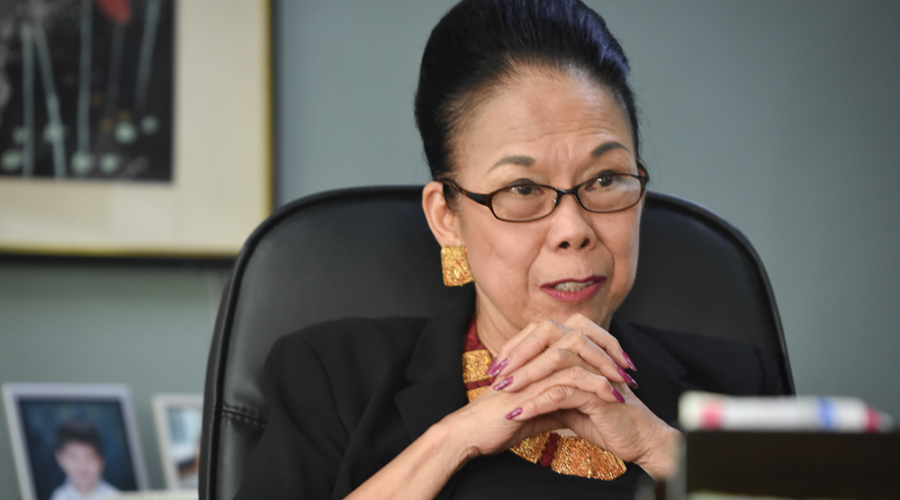
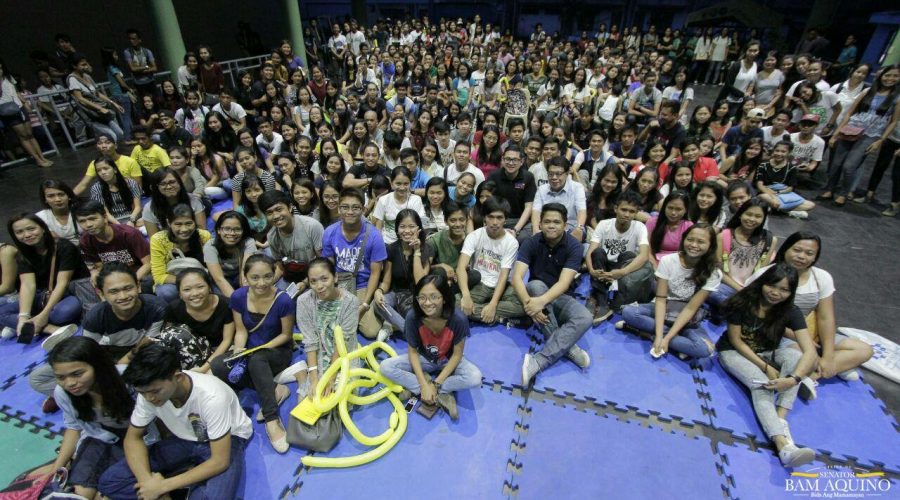
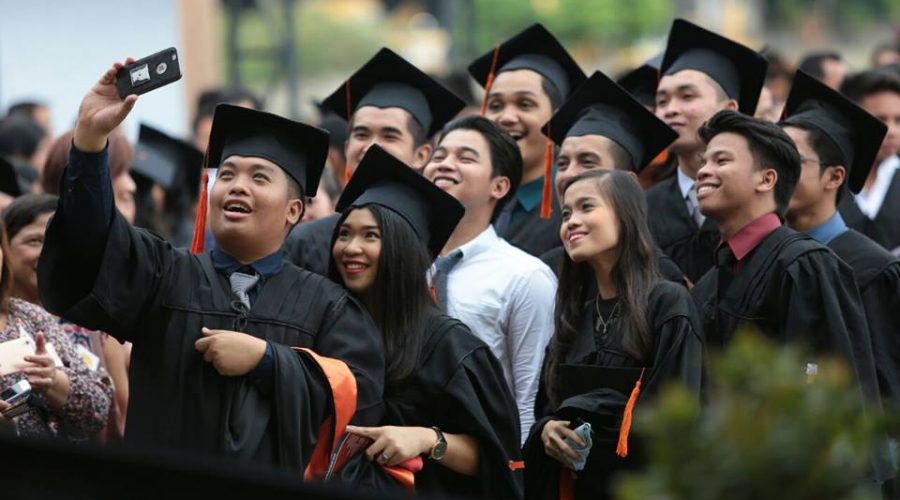
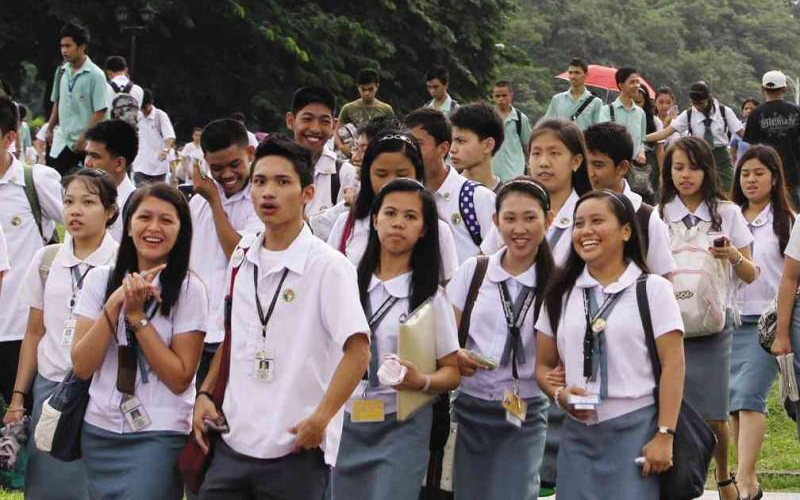
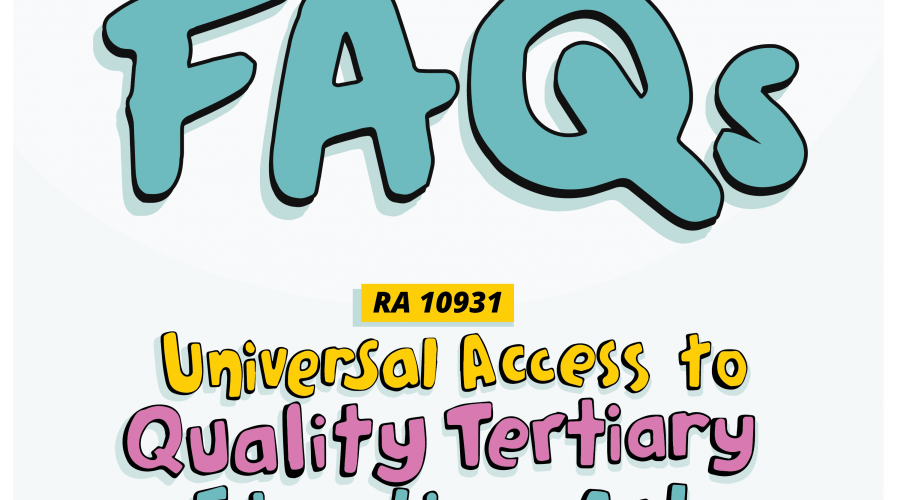
Recent Comments